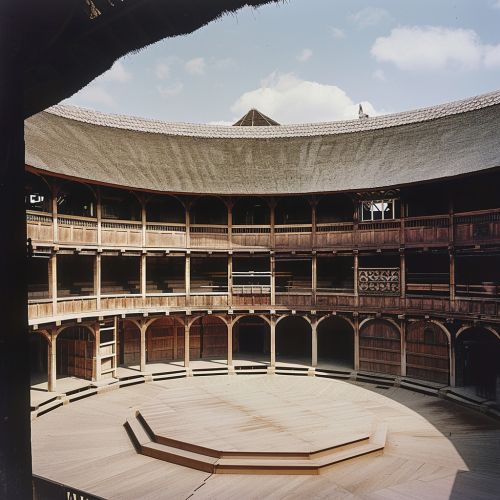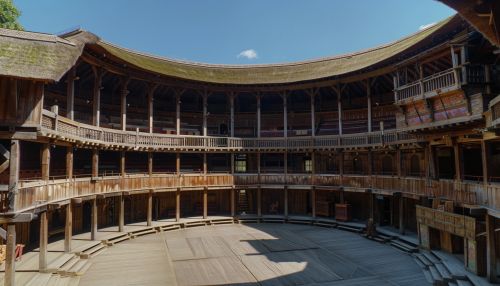Lord Chamberlain's Men
Origins and Establishment
The Lord Chamberlain's Men was a company of actors, or a 'playing company', as they were known during the Elizabethan era. The company was formed in 1594, during a time when theatre was gaining popularity in England. The Lord Chamberlain's Men was one of several such companies that were established during this period. The company was patronized by the Lord Chamberlain, who was a high-ranking official in the royal court. The Lord Chamberlain's Men was one of the most prominent and successful playing companies of the Elizabethan and Jacobean periods.
The company was initially formed by a group of players who had previously been members of other companies. These included Richard Burbage, who was the leading actor of the company, and William Shakespeare, who was a shareholder and the principal playwright. Other notable members of the company included John Heminges, Henry Condell, and Thomas Pope.


Performances and Repertoire
The Lord Chamberlain's Men performed at several different venues in London. Initially, they performed at The Theatre, which was an open-air playhouse in Shoreditch. In 1599, the company moved to the newly built Globe Theatre, which was owned by members of the company. The Globe Theatre became the primary venue for the company's performances.
The company's repertoire included a wide range of plays, most of which were written by Shakespeare. These included tragedies such as Hamlet, Othello, and Macbeth; comedies such as A Midsummer Night's Dream and Much Ado About Nothing; and histories such as Henry V and Richard III. The company also performed plays by other playwrights, including Thomas Dekker, Thomas Middleton, and John Webster.
Legacy and Influence
The Lord Chamberlain's Men had a significant impact on English theatre and literature. The company's performances were highly popular and influential, and they played a major role in establishing the popularity and prestige of the professional theatre in England. The company's association with Shakespeare also contributed to his reputation and legacy as one of the greatest playwrights in the English language.
The company was also influential in the development of the physical structure of the theatre. The Globe Theatre, which was the company's primary venue, was one of the first purpose-built theatres in England. The design of the Globe Theatre, with its open-air playhouse and tiered seating, became a model for other theatres of the period.
